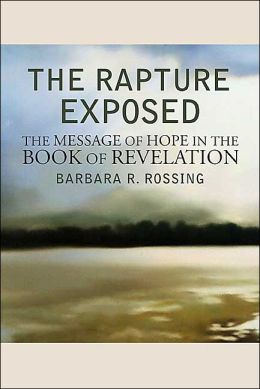The daily lectionary has been working its way through the book of Revelation. (Notice there is no "s" in the book's name. That' a pet peeve of mine.) Revelation or, more properly, The Revelation to John, is a most interesting work. Its imagery is quite odd to modern readers, though its style seems to have been well known and much more accessible to Jews and Christians at the time of its writing. And while it is understandable that many modern folks might struggle with the book, what I find most intriguing about it is how Revelation seems to have become the sole property of one wing of the Christian faith.
Aside from some of today's verses making an occasional appearance at a funeral, I don't know that I ever heard a word from Revelation as I grew up in the church, and that includes both worship and Sunday School classes. That is not to suggest all Christians share my experience. In some congregations it appears with much more regularity, but those are generally not Presbyterian congregations, certainly not moderate to liberal ones.
Somewhere along the way, presumably with the advent in the 19th Century of Dispensationalism, the strange theology that brought us the notion of a rapture, Revelation was ceded to those Christians who saw the book as a cryptic manual outlining details of how and when the world would end. Because these rapture folks liked Revelation so much, differently minded Christians said to them, "You can have it."
Simply on its own, the loss of Revelation is a significant loss to the liberal end of the faith. The book is a book of hope written to people going through great difficulties, and there are many times when it speaks a word we desperately need to hear. But even more, the abandonment of Revelation is part of the larger practice of defining ourselves as "not like them," a practice that undermines the very faith we claim to profess.
Think of all the things more liberal Christians don't do because they don't like the way conservative Christians do them. Your list may be a bit different from mine, but mine includes, "We don't do evangelism. We don't talk about Jesus as Savior. You can't take the Bible too seriously," and so on. I think you can see the trajectory. All this is quite understandable, but it also means that liberal Christians often know much more about what they are not than about what or who they are.
Brian McLaren's latest book, Why Did Jesus, Moses, the Buddha, and Mohammed Cross the Road?: Christian Identity in a Multi-Faith World, sees this as perhaps the biggest challenge facing Mainline and liberal churches. In response the the strong, but largely hostile Christian identity of more fundamentalist Christians, we have created a very open and friendly, but at the same time, very weak identity. And in a post-denominational, some would say post-Christian culture, this identity is nearly impossible to pass down to those who come after us. It has nothing particularly compelling or distinctive. It only makes real sense in a world where everyone "has" to be Christian, and there are large numbers of people who don't want to be "like them." McLaren argues that the future of groups such as Presbyterians, Lutherans, Episcopalians, etc. depends on our discovering our own strong yet benevolent identity.
I couldn't agree more, and perhaps one small step in building such an identity is to reclaim Revelation for ourselves, to trust that it has much to show us, and that God can and does speak through it. Revelation does not speak of a rapture, or of the destruction of the world for that matter. But it does speak good news, and we would do well to listen to it rather than simply rejecting what someone else says the book is about.
Click to learn more about the lectionary.

No comments:
Post a Comment